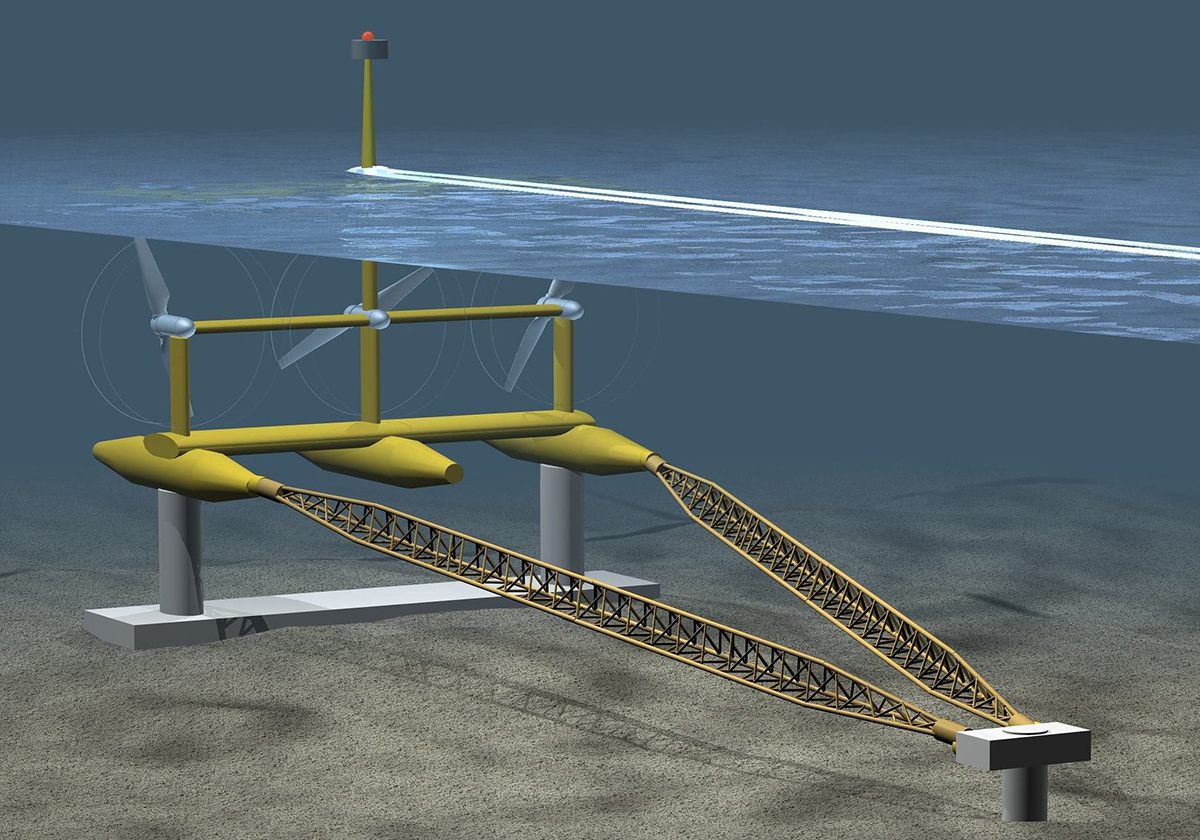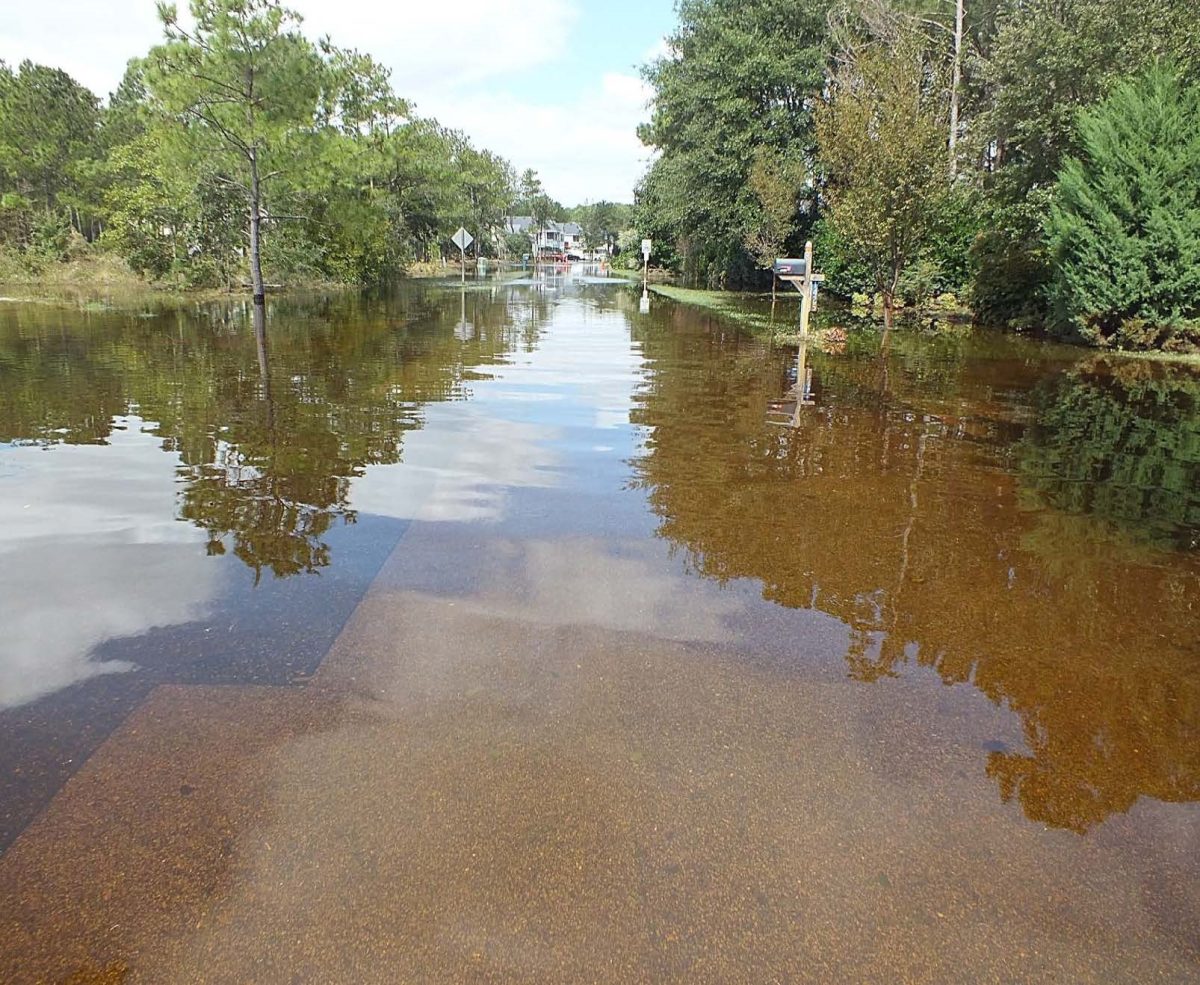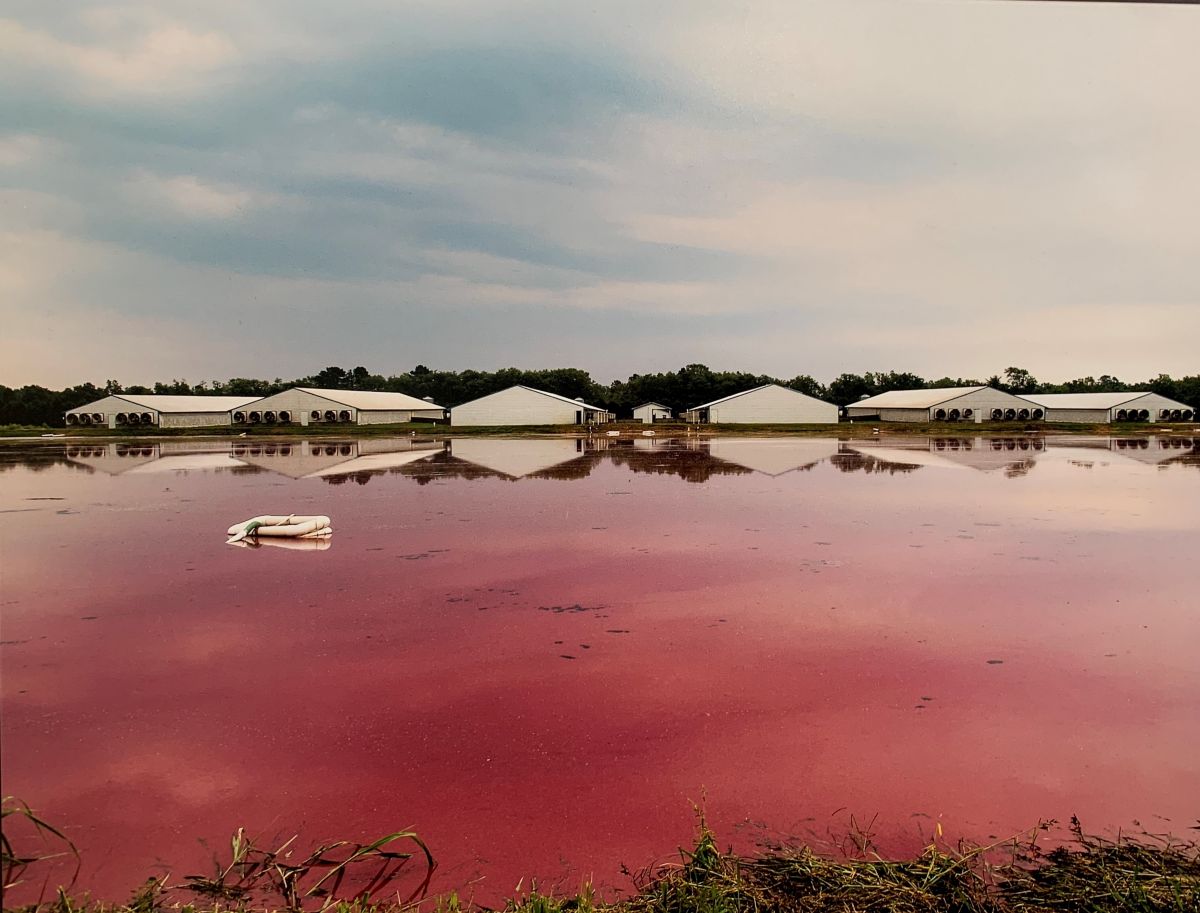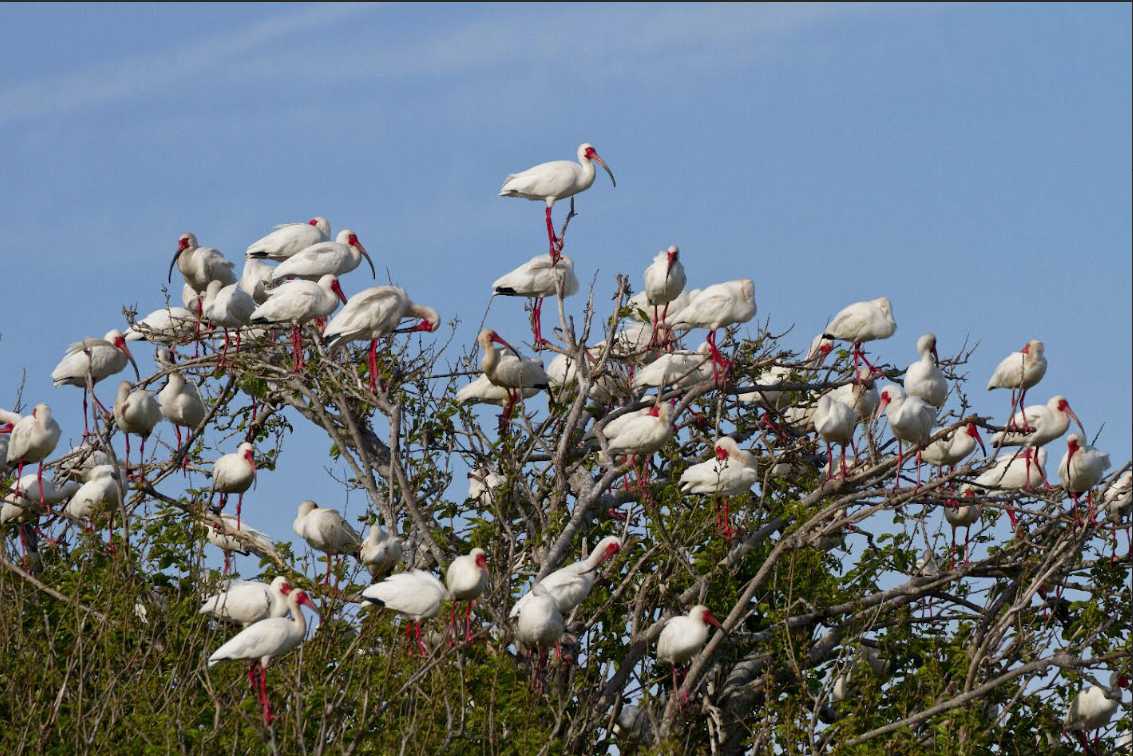PINE KNOLL SHORES — Third-grade Bogue Sound Elementary School teacher Amy Byrd, with the command to “Go,” begins grabbing red M&M’s candy out of a bowl that recent University of North Carolina at Chapel Hill graduate Joseph Townsend has in his hands.
The goal of the game is to understand why cells can only get as big as they are. Cells and M&M’s? What’s the connection?
Supporter Spotlight
The activity is one of many found on the tables of the SciREN, or Scientific Research and Education Network, Coast event held Feb. 16 at the North Carolina Aquarium at Pine Knoll Shores.
In the first round of the game, Byrd is only able to use one hand, demonstrating the smaller surface area from which a smaller cell has to feed. In round two, Byrd uses both hands, but must collect more food to survive.
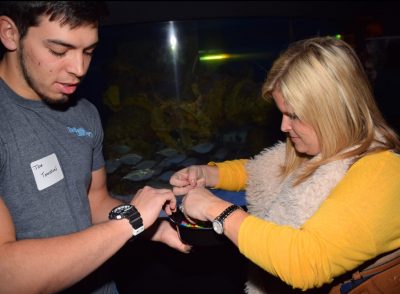
“As you get bigger, you’re going to reach this point to matter how good you are at feeding, you’re not going to be able to satisfy your needs at a certain size,” Townsend said, explaining why cells only ever get as big as they are.
Before Byrd leaves his table, she writes down her email address to receive more information from Townsend about his game, which doubles as a classroom lesson plan.
The graduate student-led event connects local educators and local researchers to improve science education for students, free of charge. At least 50 scientists and more than 80 teachers attended.
Supporter Spotlight
Beyond the activities, the nonprofit SciREN serves to exchange ideas on how to communicate science in a classroom setting.
In the weeks prior to the event, teachers hosted a workshop for scientists from the local labs, including the UNC-Institute of Marine Sciences and North Carolina State University’s Center for Marine Sciences and Technology, or CMAST, both in Morehead City, and the Duke University Marine Lab on Pivers Island near Beaufort. The teachers explained how to create lesson plans within the means of a classroom.
The scientists then took this knowledge and formulated the lessons that were presented at the event at the aquarium.
Many of the lesson plans are interactive, requiring students to get hands-on with the subject matter. For example, a group of Duke Marine Lab students created a lesson explaining how drones can be used for research.
They placed a variety of different-sized toys, and pieces of paper with drawing of animals on a table. There were a few repeat animals in the mix. Doctoral candidate K.C. Bierlich said students are first asked to look at the toys at eye level with the table. The children then report how many of each animal they can see from that angle, which is a difficult task.
Then, Bierlich said, the children are asked to stand up and take an aerial view of the toys and recount the different types of animals. The goal is to understand that a change in perspective can help researchers count animal populations.
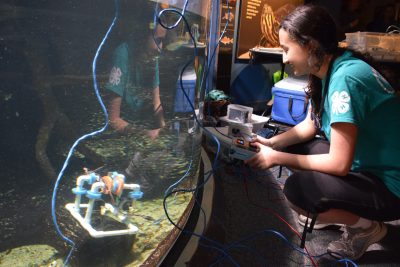
The lesson plan also includes slideshows and videos teachers can present to students, including drone footage and photographs Duke University researchers took of whales during a recent research trip to Antarctica.
Because of the technical jargon and concepts involved, consolidating complicated scientific topics into a simple lesson plan for children is not an easy task. However, for some burgeoning scientists, this exercise is excellent practice in scientific communication.
“We’re making it a point early in a stage in our career,” Bierlich said. “We want to be better communicators with the public and younger students.”
Fourth-grade Bogue Sound Elementary School teacher Jason Vanzant said SciREN provides him with more than lesson plans; he said it gives him connections and helps him think creatively about how to teach science.
“I feel it’s needed,” Vanzant said of SciREN, “It’s a great experience. As a teacher, you’re always looking to improve or maybe present things in a new way.”
Vanzant, who also attended last year, said that he’s managed to integrate a couple of lesson plans presented at SciREN into his classroom. He said talking to scientists and fellow teachers allows him to grow in his field as a professional and stay current with scientific topics.
“Things are constantly changing,” he said, “especially with science.”
SciREN Expands
SciREN was started by a couple of UNC-Institute of Marine Science graduate students, Justin Ridge and Ethan Theuerkauf, as well as aquarium employee Meredith Heaton Bruhm, five years ago. Ridge was also present at this year’s event. He said the idea for the event was inspired by wanting to connect teachers to rich research resources in the Morehead City-Beaufort area.
“This is a nexus of marine science research,” he said, “and only a little bit of it is trickling into the local community, so we thought, ‘why not?’”
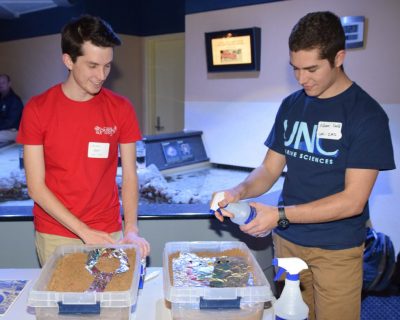
Since its inception in Carteret County, graduate students have taken SciREN to other locations, including the Triangle, Greenville and as far away as Georgia. The program has become so large that organizers made the organization a nonprofit – and they plan to keep growing.
“We’ve set a course that we can continue to expand, like we created a manual that we can just hand out. That’s what we did in Georgia and Greenville,” he said. “We’d love to keep doing that and keep facilitating these in other places.”
Ridge said he’s begun to step away from the organization, allowing newer graduate students to lead the program.
“It’s like the next generation of grad students are taking it on and making it their own,” he said.
UNC-IMS communications specialist Kerry Irish said that each event brings in local scientists, which means each event has unique lesson plans. For example, many of the lessons plans presented at SciREN Coast were from coastal scientists who work with marine and aquatic sciences, and in turn, the teachers walk away with lesson plans in that field. However, SciREN Triangle is more science, technology, engineering and math, or STEM-focused, with researchers from Duke, UNC and N.C. State focused more on engineering, chemistry and physics.
Together, these events create a wide variety lesson plan options. SciREN has found a way to compile them.
The nonprofit has an online portal where every lesson plan presented at each conference is available for download. In addition, Irish said researchers will treat the lesson plans as living documents, and will update the lesson plans as the science changes.
The community has generously supported the program, which is offered free of charge for participants. The aquarium provides a venue at no cost, and UNC, Duke and North Carolina Sea Grant, have all chipped in.
Ridge said he’s proud to see how far SciREN has come. To him, the event boils down to something simple. He said the program is about teaching science differently than a textbook.
“Not contradictory,” he said, “just something a little bit more exciting.”



